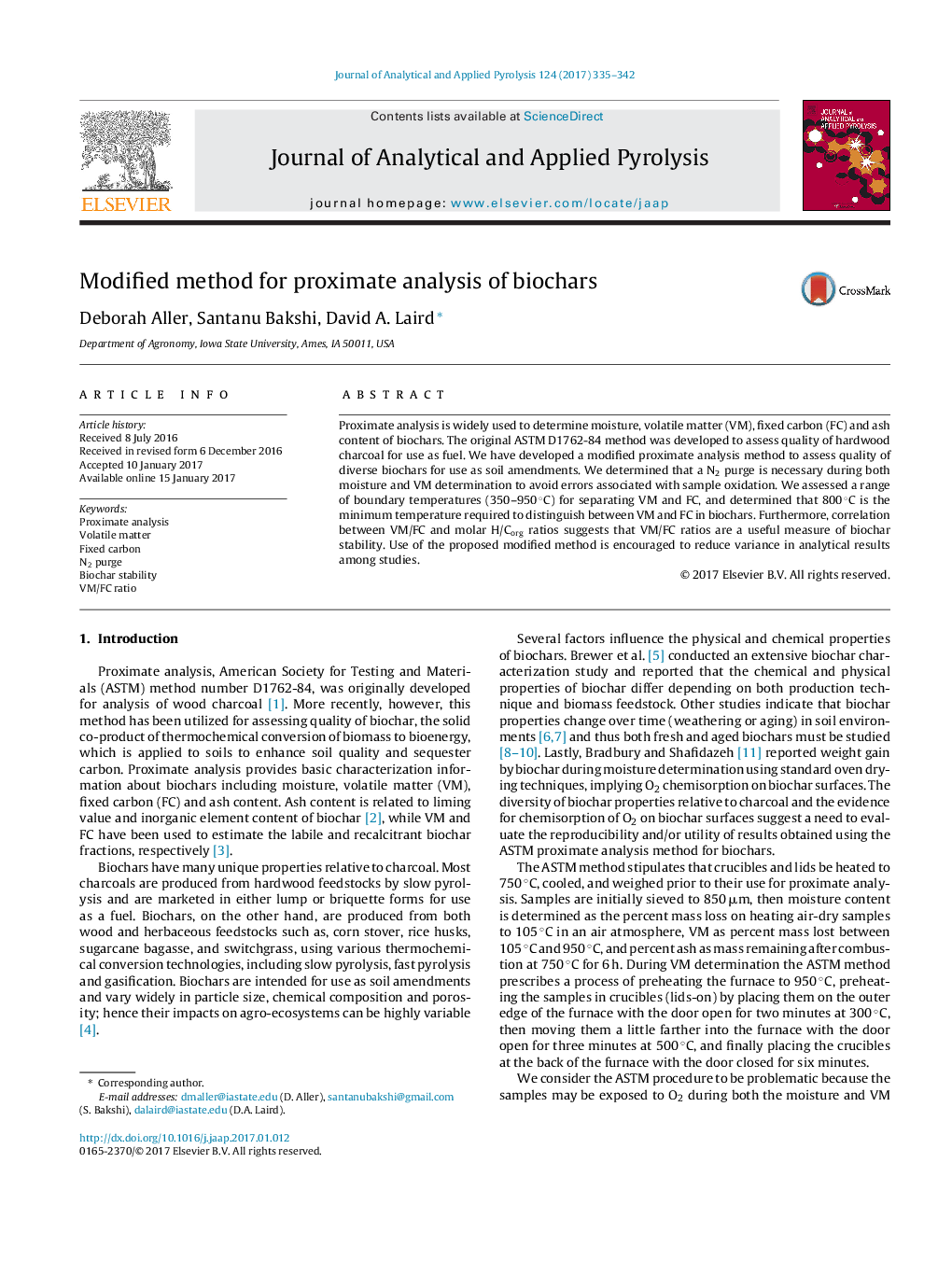| کد مقاله | کد نشریه | سال انتشار | مقاله انگلیسی | نسخه تمام متن |
|---|---|---|---|---|
| 5134602 | 1492953 | 2017 | 8 صفحه PDF | دانلود رایگان |

• The ASTM D1762-84 proximate analysis method is problematic for biochars.
• An inert gas purge is needed for both moisture and volatile matter determinations to avoid partial oxidation.
• 800 °C is the minimum temperature needed to determine volatile matter.
• A modified proximate analysis method for biochars is proposed.
• VM/FC ratios are relevant for assessing long-term stability of biochar C.
Proximate analysis is widely used to determine moisture, volatile matter (VM), fixed carbon (FC) and ash content of biochars. The original ASTM D1762-84 method was developed to assess quality of hardwood charcoal for use as fuel. We have developed a modified proximate analysis method to assess quality of diverse biochars for use as soil amendments. We determined that a N2 purge is necessary during both moisture and VM determination to avoid errors associated with sample oxidation. We assessed a range of boundary temperatures (350–950 °C) for separating VM and FC, and determined that 800 °C is the minimum temperature required to distinguish between VM and FC in biochars. Furthermore, correlation between VM/FC and molar H/Corg ratios suggests that VM/FC ratios are a useful measure of biochar stability. Use of the proposed modified method is encouraged to reduce variance in analytical results among studies.
Journal: Journal of Analytical and Applied Pyrolysis - Volume 124, March 2017, Pages 335–342